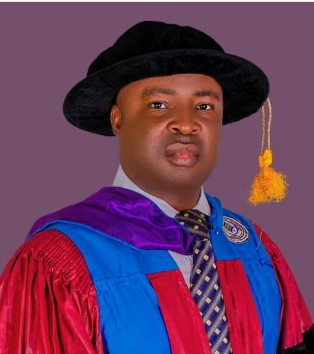Industrial and Technology Education (ITE) Department equips students with appropriate techniques to solve problems relating to technology education and industries. It also promotes technological innovations in the society. The department is mandated to produce high quality and professionally competent graduate technology teachers trained and equipped with adequate knowledge, skills, orientation, and digital technology to meet the global best practices in education.
The Department is committed to provide quality teaching, research, pre and in-service training, and consultancy services in the field of Industrial and Technology Education. Resources to achieve the commitment: ITE provides world class environment with adequate manpower (academic and non-academic), physical and material resources (facilities, laboratories, studios, workshops) for teaching, learning and research. fake hublot
The department is a significant contributor to the improvement of educational policy and practice in partnership with schools, colleges, and other educational agencies, nationally and internationally. The programme is fully accredited by National Universities Commission (NUC), the Nigerian university education regulatory agency, and other relevant professional agencies.
The Department of Industrial and Technical Education was established on 1st July, 1995 as a Department in the defunct School of Science and Science Education with ten students. Out of this, seven were from the Federal Ministry of Education on Technical Teacher Training Programme (TTTP). In October, 2011 the Department was relocated to the newly created School of Technology Education now renamed School of Science and Technology Education. The Department runs courses in the following Technology Education options: Automobile Technology Education, Building Technology Education, Electrical and Electronics Technology Education, Metalwork Technology Education and Woodwork Technology Education for the award of Bachelor of Technology (B.Tech), Master in Technology (M. Tech.) and Doctoral Degree (PhD). The first set of students graduated in 1998/1999 session.
The enrolment of students for 2021/2022 academic session stands at 874 students and over 2,000 students have graduated from the Department as at 2020/2021 session. In addition to undergraduate programmes, the department also runs PGD in Technology Education, M. Tech and PhD degrees in Automobile Technology Education, Building Technology Education, Electrical and Electronics Technology Education, Metalwork Technology Education and Woodwork Technology Education. The number of academic staff is presently twenty-five (25) and comprises of Professors to Graduate Assistant: 6 Professors, 8 Associate Professors, 3 Senior Lecturers, 3 Lecturer I, 2 Lecturer II, 2 Assistant Lecturers and a Graduate Assistant. The Heads of Department from inception, in chronological order are as follows: Professor Gabriel Dada Momoh 1995 – 2002; Dr Hassan Mallam Tukura 2002 – 2004; Professor Shehu Abdullahi Ma’aji 2004 – 2008; Professor Kazeem Adebayo Salami 2008 – 2011; Professor Emmanuel Jose Ohize 2011 – 2015; Professor Robert Ogbanje Okwori 2015 – 2020; Professor Ibrahim Yakubu Umar 2020 – 2023 and Dr. Tswanya Moses Saba, the current head. The following Staff had served as Examination Officer Prof. B. N. Atsumbe, Prof. A. M. Idris, Prof. E. Raymond, Dr. R. Audu, Dr. A. Mohammed and Dr. D. Ibrahim who is the current Examination Officer. Postgraduate Coordinators from inception are: Prof. B. N. Atsumbe, Prof. R. O. Okwori; Late Dr. J. F. Maigida, Prof. E. Raymond and Dr. R. Audu who is the current PG Coordinator.


Dr. Tswanya Moses Saba obtained Primary School Certificate and Junior Secondary Certificate in the year 1984 and 1987. WAEC Technical Certificate in Electrical Installation Work Course B in 1990. He was awarded Nigeria Certificate of Education (NCE) Electrical and Electronics Technology in 1996; B. Tech, M. Tech and PhD, all in Industrial and Technology Education (Electrical and Electronics Technology) in January 2004, January 2011 and January 2017 respectively, from Federal University of Technology Minna.
He joined the services of Federal University of Technology Minna on the 9th of November, 2005 and is now an Associate Professor. He has served the department as Undergraduate Project Coordinator, Registration Officer, Level Adviser, and Postgraduate At the School level, he had been Examination Officer, SSTE Representative in University Senate, Member, University Senate Business Committee, and University Senate Examination Scrutiny Committee, and Deputy Dean of the School. He was also a member; University Loan Committee, External Examiner to School of Technical Education, Niger State College of Education Minna. He is an adviser: Fellowship of Christian Students (FCS) Niger State College of Education Minna and many others. He is a registered Teacher, member of Nigeria Association of Teachers of Technology and member National Association of Educational Managers and Planners.
He has supervised more than 50 undergraduate projects (Research and Practical), 8, M. Tech. Students and 1 PhD and currently supervising Ten M. Tech students and 7 PhD students. He has over 60 scholarly articles in reputable Journals and Proceedings (National and International).
Dr. T. M. Saba research areas are; Human development through Technical, Vocational Education and Training, Engineering Education and Energy management.
Vision
Educational Technology Department is structured to be known nationally and internationally for the preparation of innovative professional teachers who can demonstrate competence and resourcefulness in instructional design, development, implementation and evaluation of instructional media required and utilize such to enrich teaching and learning process.
Mission
To produce professional teachers who are technologically and technically skilled to develop instructional media and utilize such to enrich teaching and learning process.
This Department is one of the five departments in the Centre which is designed to empower trainees to be skilled specialist in designing, installing, testing and servicing electrical, electronics and computer devices which include microcomputer system, computer peripheral equipment and microcomputer-based equipment.
Metalwork technology according to Aluwong (2004) is the application of scientific knowledge in the activity of making objects out of metal in an artistic and skillful way. In other words, it is the totality of all the processes involved in the production of metal articles.
The minimum entry requirement into the Bachelor of Technology in Industrial and Technology Education are:
(a) 100 Level – 5 years Programme:
(i). Five (5) credit passes at SSCE/GCE/NECO/NABTEB ordinary level including English Language, Mathematics, Physics and any other relevant science and/or technical subjects at not more than two sittings.
(i) National Technical Certificate (NTC) with credit in English Language, Mathematics, Physics any other approved science and/or technical subject at not morethan two sittings.
(b) Direct Entry (200 Level, 4 Years Programme)
(i) Passes in two science or technical subjects in Nigerian Certificate in Education (NCE) in addition to O’ level requirements.
(ii) A minimum of Lower Credit in relevant engineering/technology programmes at Ordinary
National Diploma (OND) in addition to O’ level requirements.
(c) Direct Entry (300 Level, 3 Years Programme)
(i) Higher National Diploma at lower credit level in relevant engineering programmes in addition to O’ level requirement.
(ii) At least merit in NCE (Technical) in addition to O’ level requirements.
Members of staff of the department are actively engaged in various community and consultancy services in and outside the University. They occupy membership and leadership positions in the Federal Road Safety Corps; Old Students Associations, Resource Persons to National Teachers Institute (NTI), National Board for Technical Education (NBTE), Kaduna; National Board for Business and Technical Examination Board (NABTEB), Benin; National Examination Council (NECO), Minna, the department joined other departments in the School to organise capacity training for FUT Model School, Spelling Bees Competition, and participated in elections duties. Staff are also external Examiners of Bachelor and higher degrees within and outside the country.
Research Work Publications (Scopus Indexed): 18 articles have been published in reputable national and international conference proceedings and journals indexed by Scopus.
H-indexed articles by Google Scholar: 72 articles have been published by departmental staff in highly indexed in Google Scholar.
RESEARCH GRANT
Research Grant: The grant won by the staff of the department
Okwori, R. O., Ochigbo, S. S. & Alawode, O. D. (2022). The development of water-resistant particle board using waste plastics and cassava adhesive. Sponsored by TETfund (Ongoing).
COLLABORATION / PARTNERSHIP
Collaboration: The department is in collaboration with various academic and research institutions inside and outside the country. Such include National Teacher Institute (NTI), National Business and Technical Examination Board (NABTEB) National Examinations Council (NECO), Nigeria. The School partnered with Namibia University of Science and Technology, Windhoek, Namibia during the latter’s conference.
External Linkages: Kaduna Polytechnic, Kaduna State, Federal College of Education (Technical) Gusau, Zamfara State and Hassan Usman Katsina Polytechnic Katsina, Katsina State, Nigeria are affiliated with the department for Bachelor Degree Programmes.
INNOVATION/EXHIBITION/PATENTING (where applicable)
Innovation: The Automobile section of the department of Industrial and Technology Education designed and developed a tricycle powered by solar energy with 70% local content.
Solar Powered Tricycle
ANY OTHER RELEVANT INFORMATION
Industrial Training
Nine months of industrial training is an integral part of the five years degree programme. This is made up of 12 weeks of Students Work Experience Programme (SWEP) which is executed internally at the end of 200Level and twenty-four (24) weeks of Students Industrial Work Experience Scheme (SIWES) in a relevant industry in the second semester of 400Level.
Teaching Practice
Twenty-four weeks of Teaching Practice is executed in any of the following institutions: Secondary Schools, Technical Colleges, Vocational Centers, Colleges of Education (Technical) or Polytechnic. This is an integral part of the five years degree programme and takes place in the second semester of 400Level.